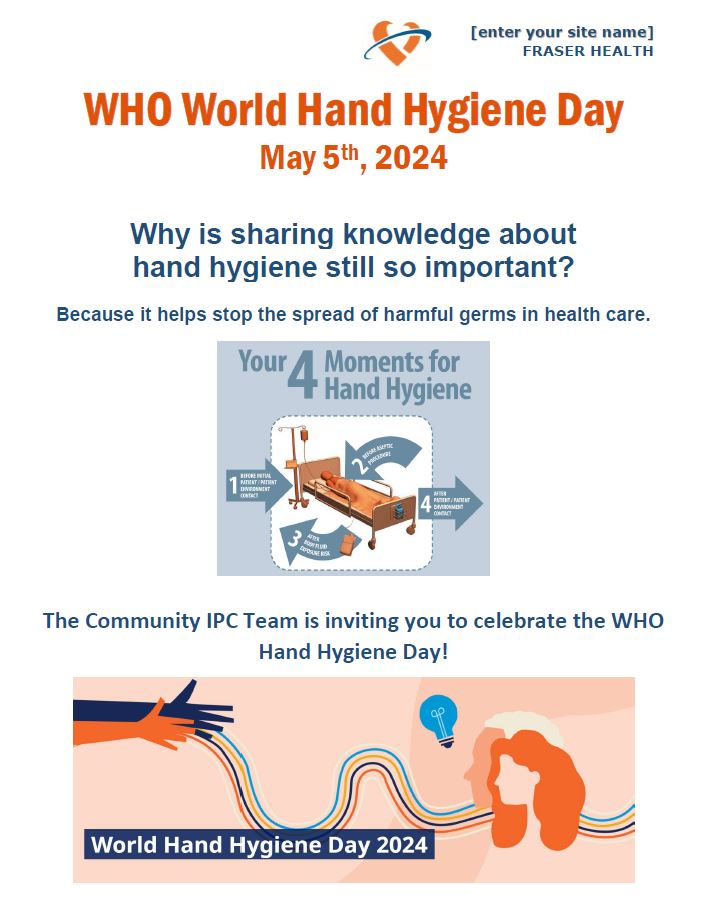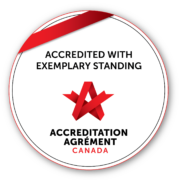Smoke-Free Campus: Changes for Staff Smoking
Effective immediately, smoking in the courtyard smoking hut will be restricted to residents ONLY. Visitors (and staff) will not be permitted to smoke in this area.
Effective immediately, smoking in the courtyard smoking hut will be restricted to residents ONLY. Visitors (and staff) will not be permitted to smoke in this area.
To: All Menno Place Staff
From: Bas Kervel, Director of Support Services
Re: Closure of the Fireside Café
___________________________________________________________________________
We are sorry to announce that the Fireside Café is closing until further notice. The last day of service will be Friday, May 17, 2024. Reassessment of the menu and financial viability will take place in the coming weeks. Our hope is to create a renewed café that is sustainable.
In the near future we will provide coffee and snacks by donation. The café has been a welcome spot on campus for residents, families, and staff and this decision was not taken lightly. We want to thank the café team who have done an excellent job over the years. We will miss seeing your smiling faces in the morning over coffee.
What happens next?
Please continue to use the Fireside Café patio and café tables for your meals, breaks, and family parties.
We are actively planning for ways to revamp and improve the café. We want to hear from you! If you have ideas for things you’d love to see in a café on campus or notes for things that were challenging we want to hear them.
Please use the form below to send us your thoughts and let us know how the Fireside Café has been beneficial for you, your loved ones and your family.
If you have any further questions please email connect@mennoplace.ca
Learn practical applications to identify risk factors of violence and de-escalation techniques at a Violence Prevention Workshop on Monday, May 13, 2024. Space is limited. Register soon!
Date: May 3, 2024
To: All Staff
Subject: Recognition of Nurses Week – May 6th to May 12th
Dear Team,
As Nurses Week approaches, we want to take a moment to acknowledge and celebrate the invaluable contributions of our nursing staff here at Menno Campus. This week, from May 6th to May 12th, we have the opportunity to express our gratitude and appreciation for the dedication, compassion, and professionalism demonstrated by our nurses, day in and day out.
Our nurses are the heartbeat of our care services, providing comfort, support, and skilled care to those who need it most. From our direct care team to our Managers of Care, educators and Directors of Care, our nursing team’s tireless efforts ensure the well-being and dignity of our residents, fostering an environment of healing, compassion, and respect. Their commitment to enhancing the quality of life for those under our care is truly commendable.
Throughout the challenges we’ve faced, our nursing team has remained steadfast in their commitment to excellence. They’ve adapted to new protocols, embraced innovative technologies, and demonstrated remarkable resilience in the face of adversity.
During Nurses Week, let’s take the time to celebrate and honor the invaluable contributions of our nurses. Whether it’s a simple thank you, a kind gesture, or a thoughtful note of appreciation, let’s make sure our nursing staff know just how much they are valued and admired.
To our nurses: Thank you for all that you do. You make a difference in the lives of so many, and we are incredibly grateful for all that you do.
Please join me in celebrating Nurses Week on Friday, May 10th for lunch – 11:30am – 2:30pm – at the Menno Hospital Chapel and expressing our heartfelt appreciation to our amazing nursing team.
Happy Nurses Week!
Sujata Connors, CEO
On behalf of the Executive and Management Teams, we thank our amazing nurses!!!

Hand hygiene saves millions of lives every year when performed at the right times in health care. Learn more at the World Hand Hygiene campaign website: https://www.who.int/campaigns/world-hand-hygiene-day/world-hand-hygiene-day-2024
Few hymns paint such a vivd picture of God’s love as this one by Samuel Trevor Francis. Find out more about the hymn, O the Deep, Deep Love of Jesus, and how its author experienced the mercy of God.
Click to listen.
This week Andy Capesinio brought a devotion based on Ephesians 6:18, “And pray in the Spirit on all occasions with all kinds of prayers and requests. With this in mind, be alert and always keep on praying for all the Lord’s people.”
We prayed for Smitha Varghese, Director of Care & Quality Improvement, Menno Hospital & Assisted Living and her team. Click on the play button below to view the video.
To: All Menno Home, Menno Hospital and Menno Apartment Employees
From: Jessy Manhas, Manager of People & Culture
Date: April 29, 2024
Re: Availability Form
_______________________________________________________________________________________________
In order to ensure our campus of care has adequate staffing levels at all times to provide quality care to our residents, we need updated availability from all staff on campus.
Who does this affect?
Employees of Menno Home, Hospital, and Apartments. (This does not impact MBS staff.)
What do Employees need to do?
Please complete an availability form and drop it off at your respective Staffing department no later than May 27, 2024.
Where can forms be found?
Or you can click this link to download and print a form – Availability Form – Staffing – Apr 2024. Please return the signed paper copy of this
Then what?
Effective June 05, 2024 staff will be called out according to their updated availability.
If the Staffing team does not receive an updated availability form, the previous availability on file will be used.
Thank you everyone!
Learn practical applications to identify risk factors of violence and de-escalation techniques at a Violence Prevention Workshop on Monday, May 13, 2024. Space is limited. Register soon!
We’ve talked to over 500 members of this community. We want to hear from you. Please click the button below to take the survey and send us your feedback.
USE OF MATERIALS
All materials available on the www.MennoPlaceStaff.com website are published for the sole purpose of keeping informed those individuals who work on the Menno Place campus. These materials may be shared with others who are also connected to the Menno Place campus in this same way. No content or material may be used or shared in any other context without the written permission of the Menno Place Director who oversees communications.


